8 unexpected benefits of growing clover in your yard
Will you keep yours? Landscapers are turning us into clover lawn converts
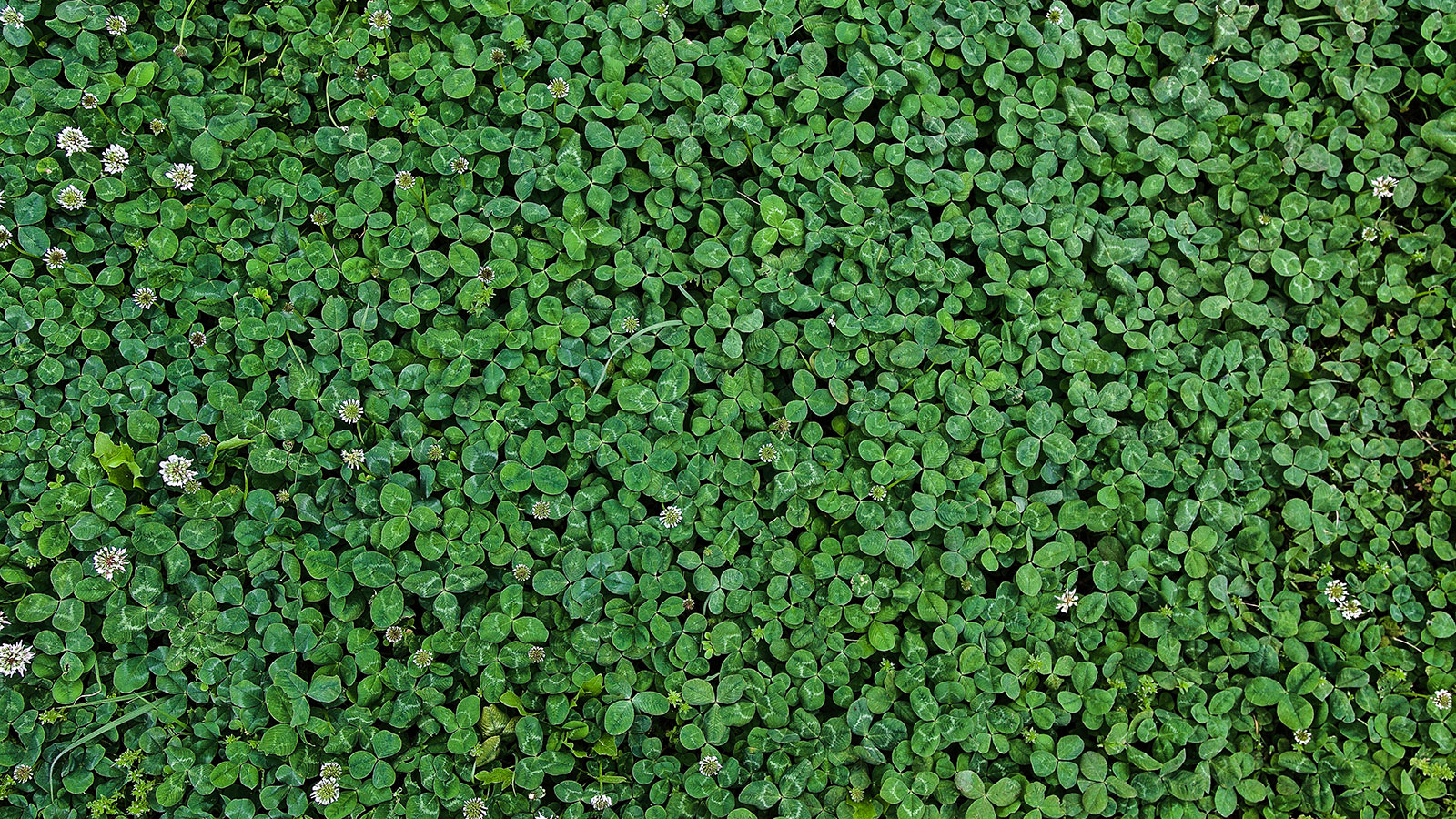

If come every spring you begin to sigh at the emerging clover in your lawn, you might want to reframe those negative thoughts. Much like the many benefits to using ground cover plants for aesthetic purposes and to manage weeds, clover comes with its own unique perks for your yard.
We called on landscaping experts to see how clover sits in their books. For some it is a love-hate relationship, but more often than not, clover comes out on top.
Favor this verdant green plant and you could see improvements in your soil's integrity, and to overall garden life. So, before you decide to get rid of clover in your lawn, take a look at some unexpected benefits of growing clover.
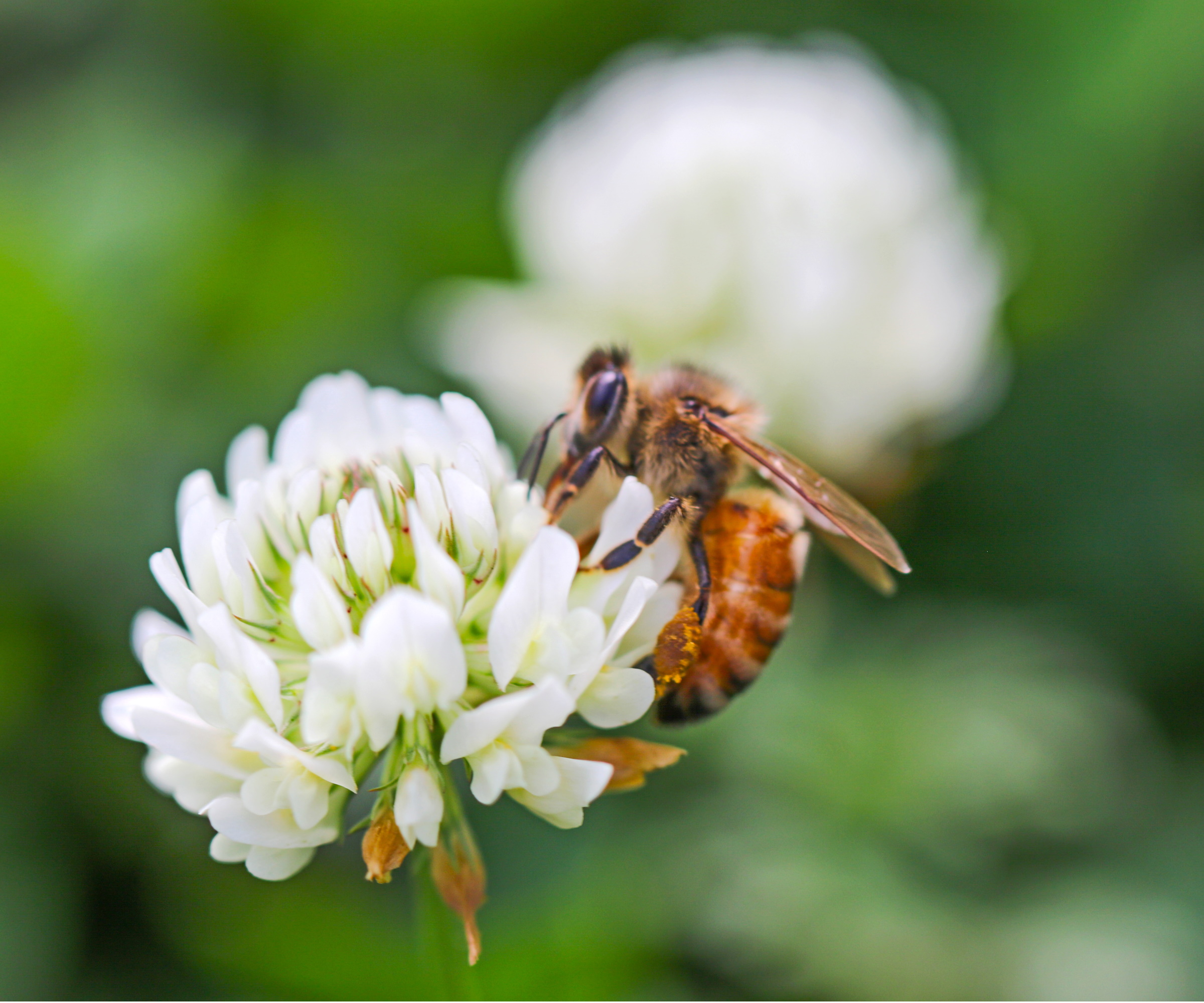
8 benefits of growing clover
Clover is often thought of as a weed, but it provides an important early food source for bees among many other benefits you might not be aware of.
1. Clover is a low-maintenance plant
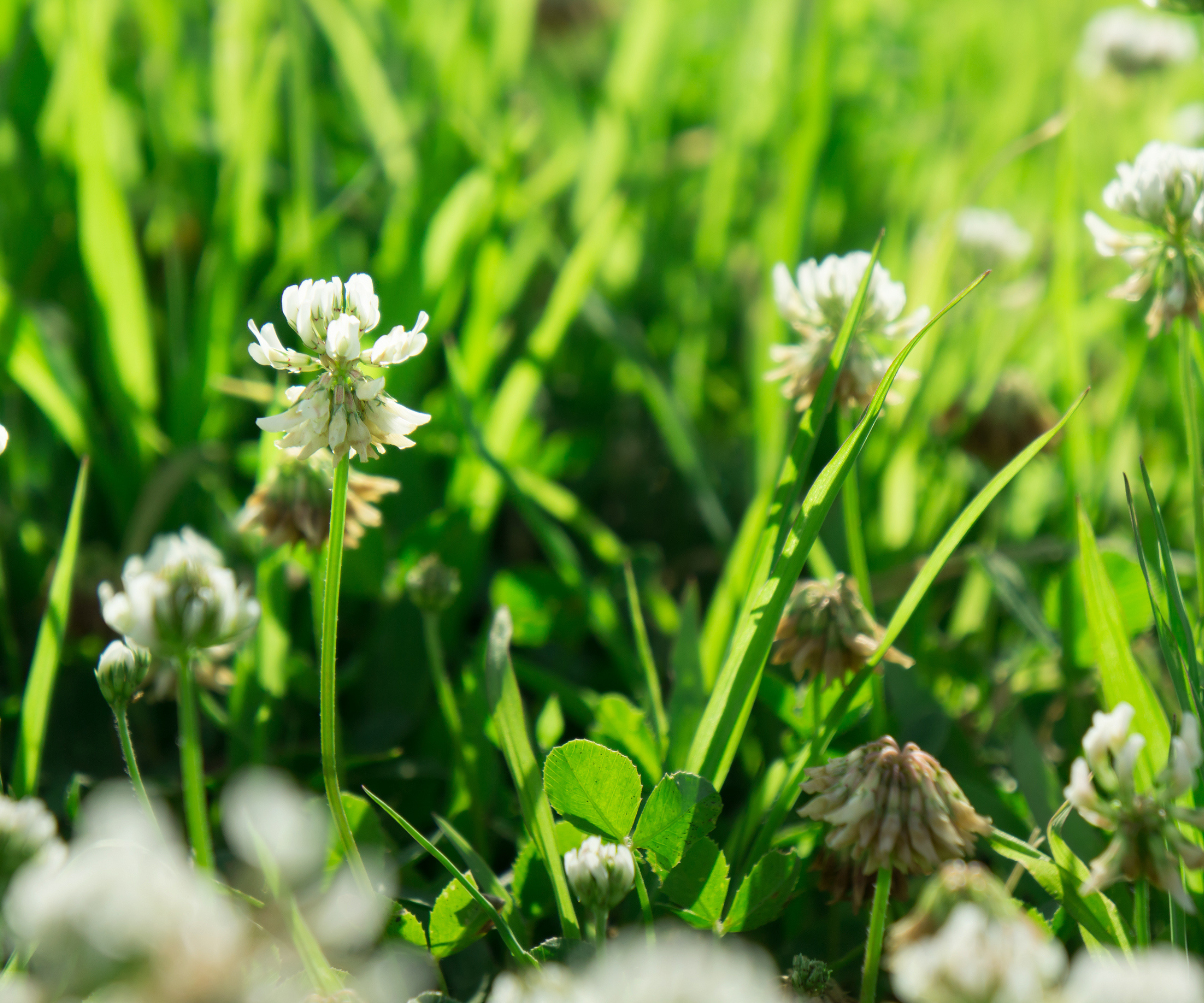
We will start here since, generally speaking, clover takes care of itself and might make an ideal companion for the laid-back gardener.
'Clover is low-maintenance and requires less mowing, water, and fertilizer than traditional turf varieties,' shares Matthew Koch, Ph.D., Director of Biotechnology, Genetics, and Seed at Scotts.
'It is generally more tolerant to a range of growing conditions compared to many grass species.' Naturally, Matthew recommends Scotts Pursue Clover Lawn from Amazon as a solid choice for growing a clover lawn.

Born and raised in New Jersey, Dr. Matthew Koch joined Scotts Miracle-Gro in 2012 after finishing his PhD work in plant genetics and breeding at Rutgers University. He began as a Scientist in the Biotechnology program and is currently the Director of Biotechnology, Genetics, and Seed.
2. Clover can improve soil structure
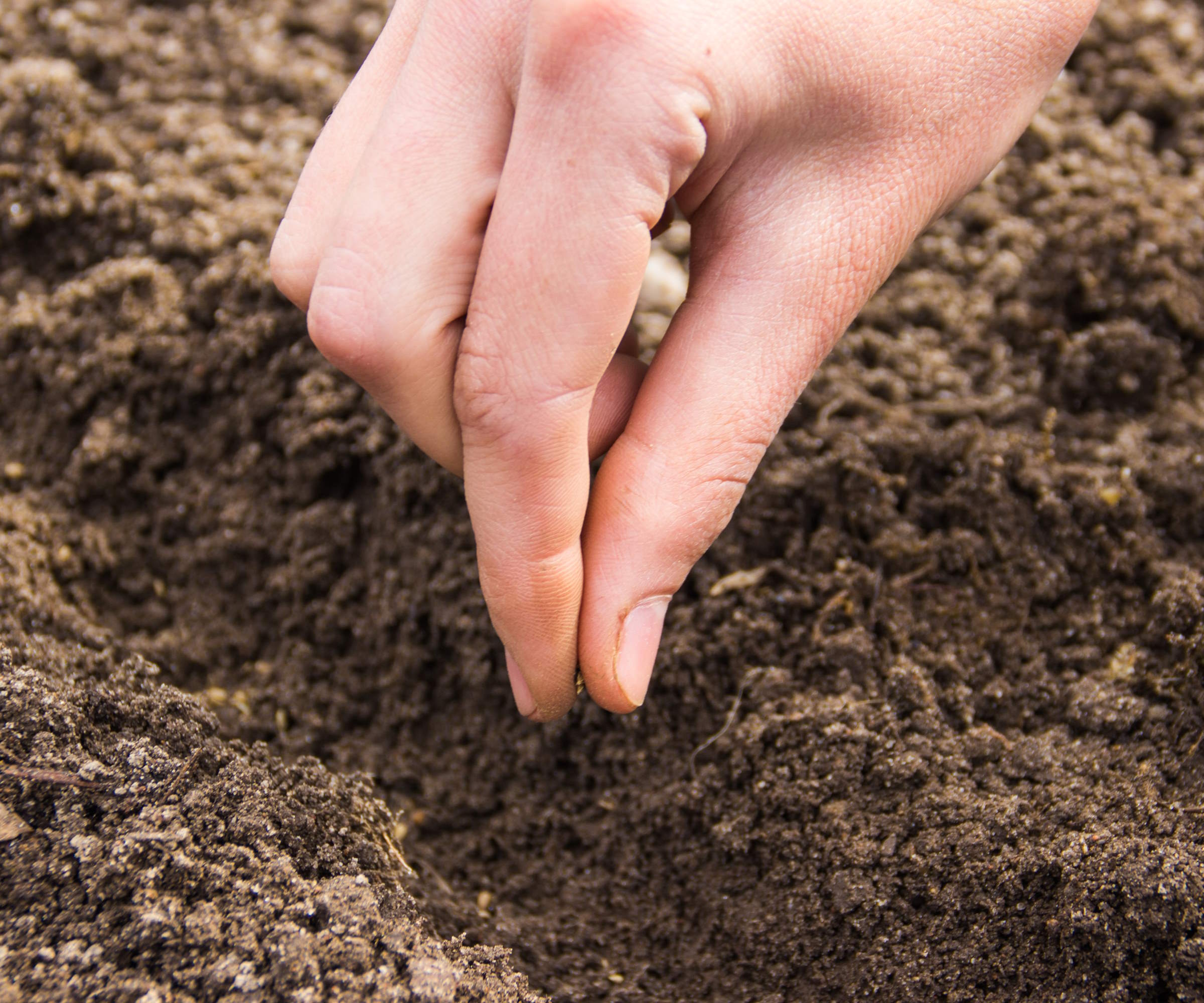
The deep and complex root structure of clover not only helps this ground cover to easily absorb all of the nutrients and water it needs to remain beautifully verdant, but it also provides a layer of protection for soil in your yard and can help the integrity of the ground. All of which will benefit your garden landscaping efforts.
'The deep root system of clover also helps to improve soil structure by aerating compacted soil and allowing for better drainage,' continues Matthew who highlights how clover protects against the elements too. 'The dense mat of clover foliage shields soil from direct exposure to rainfall and wind while its deep root structure binds soil particles together. Both of these attributes help to stabilize soil and prevent erosion.'
This is especially helpful with problematic lawns: 'Clover also promotes a healthier lawn by enhancing the soil structure and moisture retention It has a deep root system that introduces organic matter deep into the soil, improving its aeration and water retention capabilities,' adds Scott Mcleod, the owner of McLeod Landscaping Inc. in Tewksbury, MA. 'This property has been particularly useful in projects where clients faced challenges with compacted soil or poor water infiltration.'
For especially needy lawns, we recommend the Jardineer Plug Aerator Lawn Tool at Walmart.

Scott McLeod is the owner of McLeod Landscaping Inc., a leading provider of commercial and residential landscaping, hardscaping and snow removal services in Tewksbury, MA, and the surrounding areas. With over three decades of experience, Scott has grown McLeod Landscaping into a trusted partner for landscaping design, construction, renovation, enhancement, and maintenance.
3. Clover can withstand dry spells
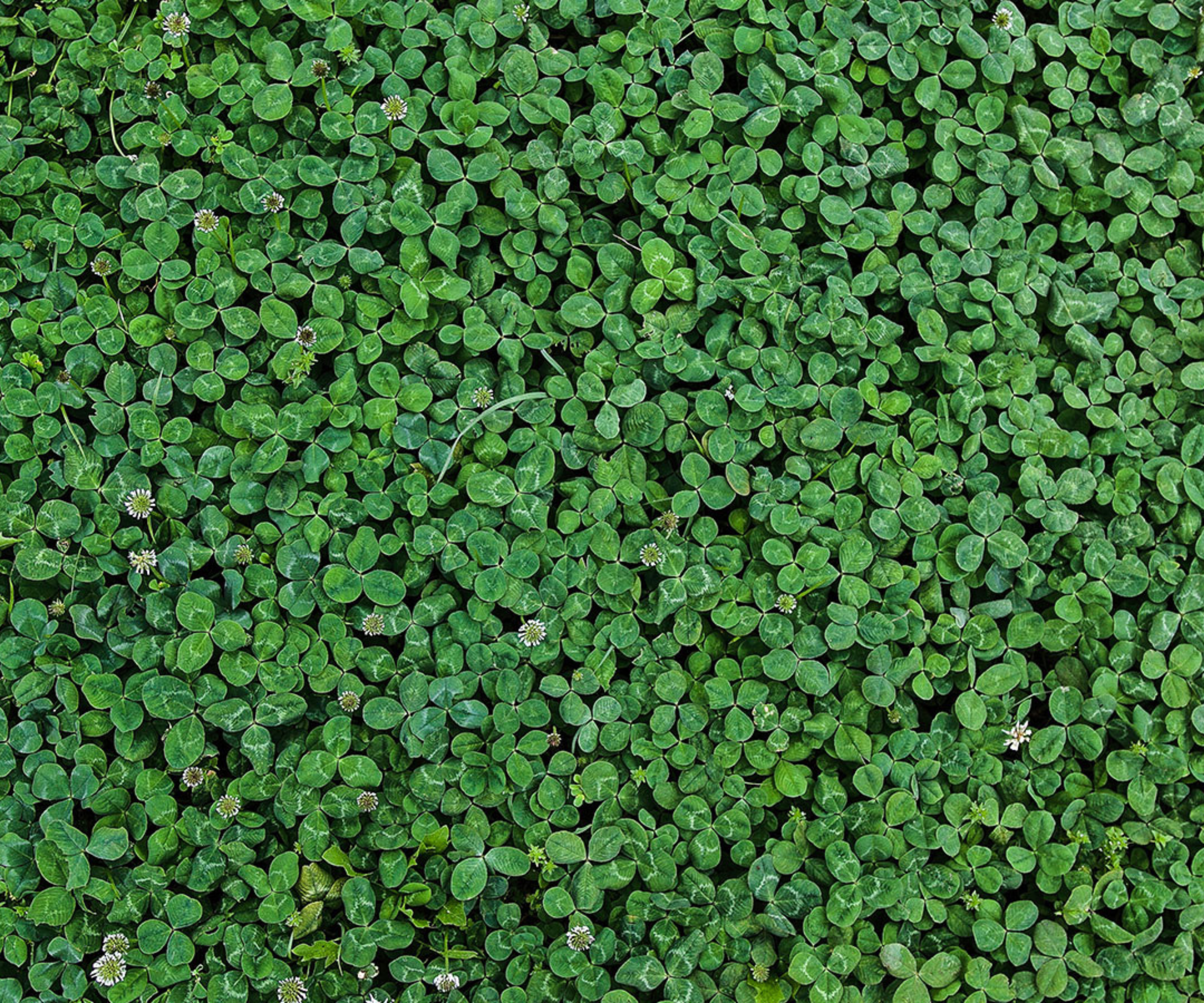
Since clover is quick to source all the nutrients it needs from the soil, it has been called out by many landscapers to outlive grass in periods of drought.
'Furthermore, clover is renowned for its resilience under various environmental conditions,' shares Steve Schumacher, who has over three decades of experience in the landscaping industry and is the owner-operator of Boston Landscape Co. Clover could help make a lawn that is green and thick; keeping it that way without relying on low water resources – an increasing concern around the world.
'During a several-acre project on a commercial property in the greater Boston area, lawns containing clover withstood a dry spell with significantly less watering compared to those without, leading to notable conservation of water and cost savings.'
Consider a water barrel to conserve rainwater year-round too. This moveable 100 gallon water storage tank from Rihogar Store on Amazon could be a wise investment.

With over three decades of experience in the landscaping industry, Steve Schumacher is the proud owner-operator of Boston Landscape Co that has been dedicated to delivering top-notch landscape contracting services to clients across the region since 1991.
4. Clover increases biodiversity
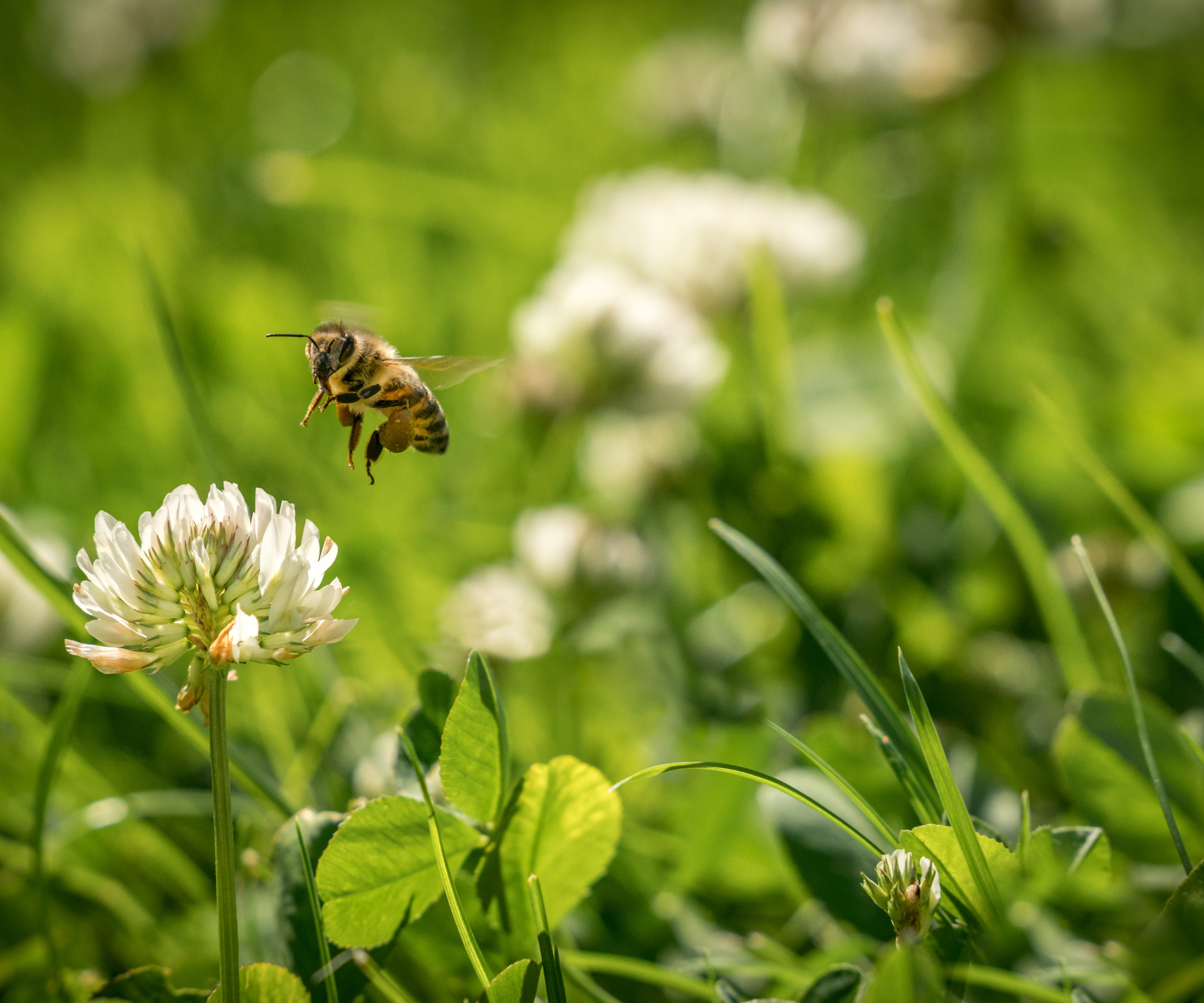
Like flowers that attract bees, clover is brilliant to keep for a wildlife-friendly yard space. It also provides an essential early food source to many garden bees.
'Clover flowers can enhance biodiversity by attracting beneficial insects, including bees, butterflies, and other pollinators which contribute to the overall health of the ecosystem,' says Matthew Koch.
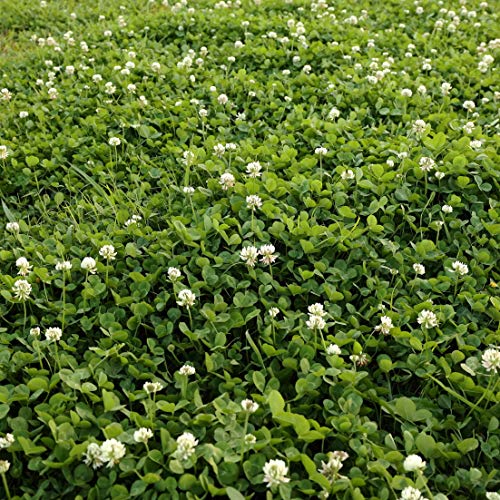
This clover seed can be grown in zones 3 - 10. White dutch clover seed is a perennial used for erosion control, lawn alternative, green manure crop, ground cover, and many other uses.
5. Clover regulates nitrogen levels

This is one of the benefits of clover that has seen more press in its time. Like coffee grounds in gardening, clover can regulate the pH of soil. 'One of the most significant advantages of clover is its ability to fix nitrogen naturally,' continues Scott McLeod.
'This process enriches the soil by converting nitrogen from the air into a form that plants can absorb and use, essentially fertilizing the lawn naturally. This reduces the need for synthetic fertilizers, making your lawn care more sustainable and cost-effective.'
If you want to check your soil's pH you can find soil pH meter kits on Amazon like this Sonkit Soil Moisture Tester.
6. It is cost effective
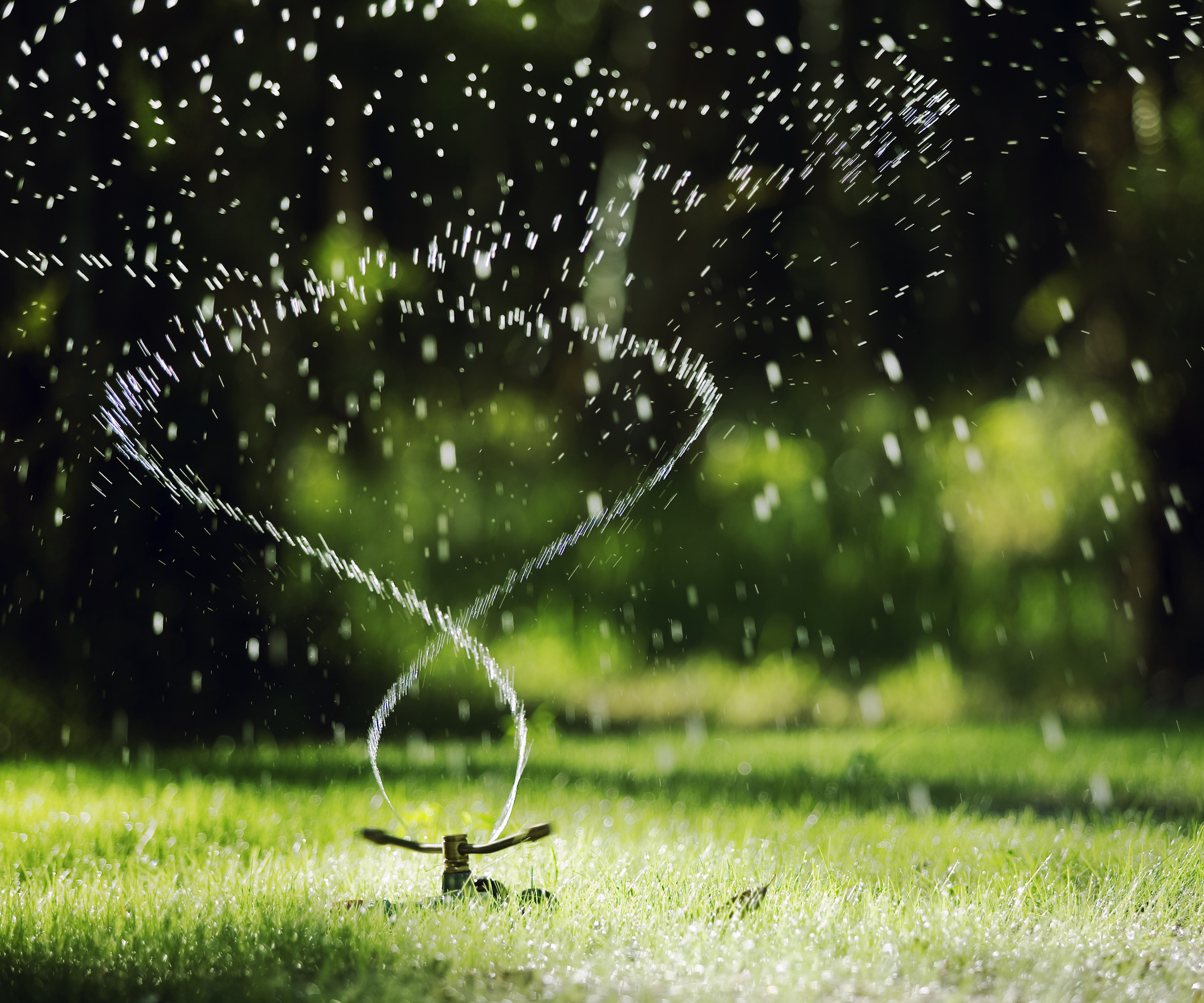
Clover is a prolific grower and needs little attention to survive and thrive. However, for anyone who likes a lush and precisely cut lawn but who would not say no to saving money on the electric bill, (or reducing the need to pull out the lawn mower for that matter), growing a clover lawn could be just the ticket.
'Apart from soil health, clover remains green and lush even in conditions where other plants might suffer from drought stress,' adds Steve Sylva, owner of Steve’s Services landscaping company.
As we have seen, fertilizing a lawn is less of a concern with clover. This reduces the need to buy and use pesticides too. 'This robustness means less watering is needed, which is both cost-effective and environmentally friendly.'
With over 25 years of experience, Steve Sylva is the owner of Steve’s Services, a premier landscape company based in Malden, MA. Founded in 1995 as Steve's Lawn Care Services and now known as Steve's Services, the company specializes in landscape maintenance, installation, and hardscaping services for clients in Everett, MA, and surrounding areas.
7. Clover may help other plants bloom and prosper
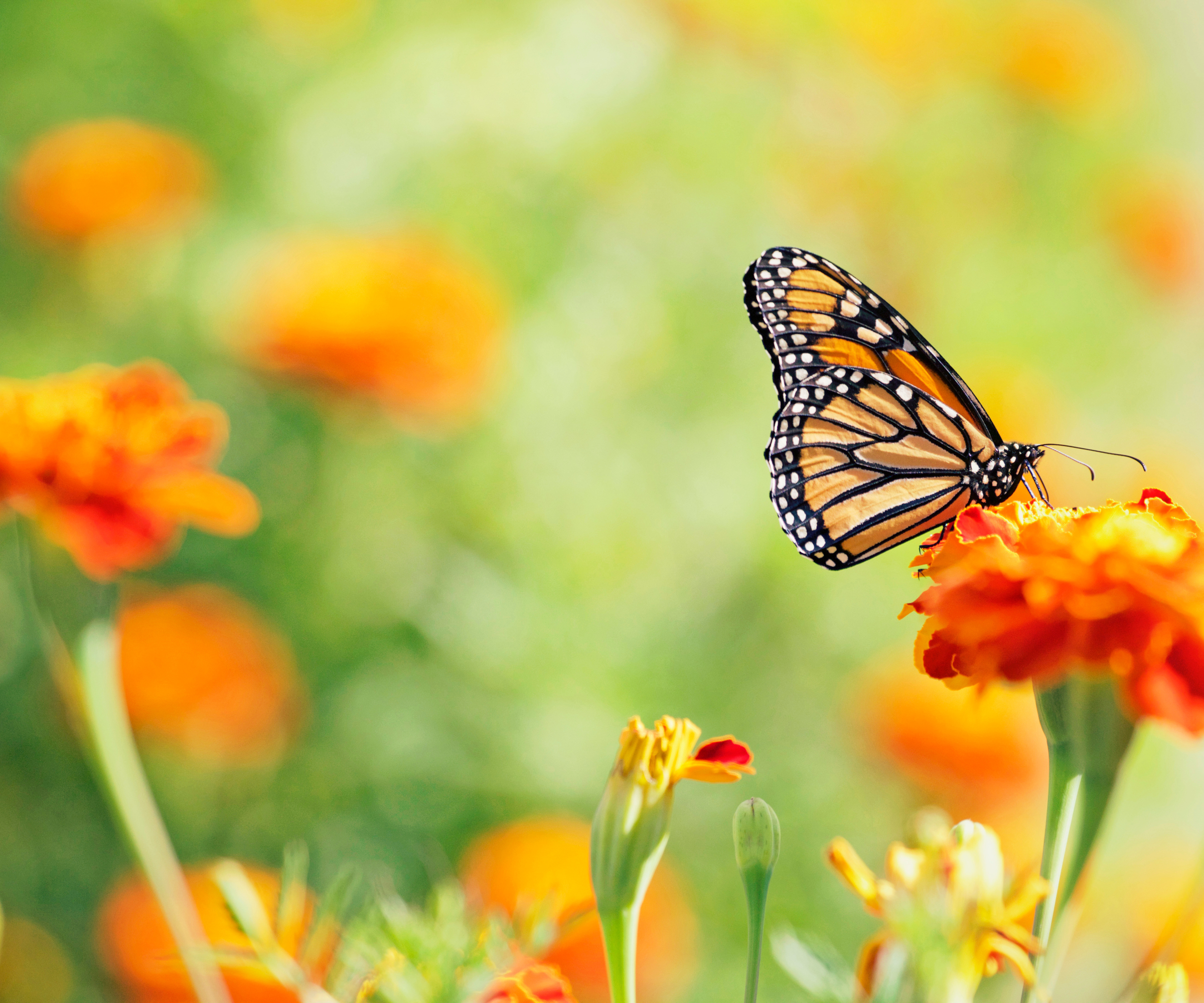
As well as being self-sufficient, clover helps other plants prosper, enhancing growth, and overall health.
'Clover's extensive root system also helps improve soil structure and nutrient cycling,' says Matthew Koch. 'This is beneficial to neighboring plants as it provides them with better access to water, air, and nutrients in the soil.
'Furthermore, clover flowers are rich in nectar which attracts pollinators like bees and butterflies. These pollinators play a crucial role in fertilizing other plants, including flowering plants, fruits, and vegetables, leading to increased pollination and growth.'
8. Clover is aesthetically pleasing
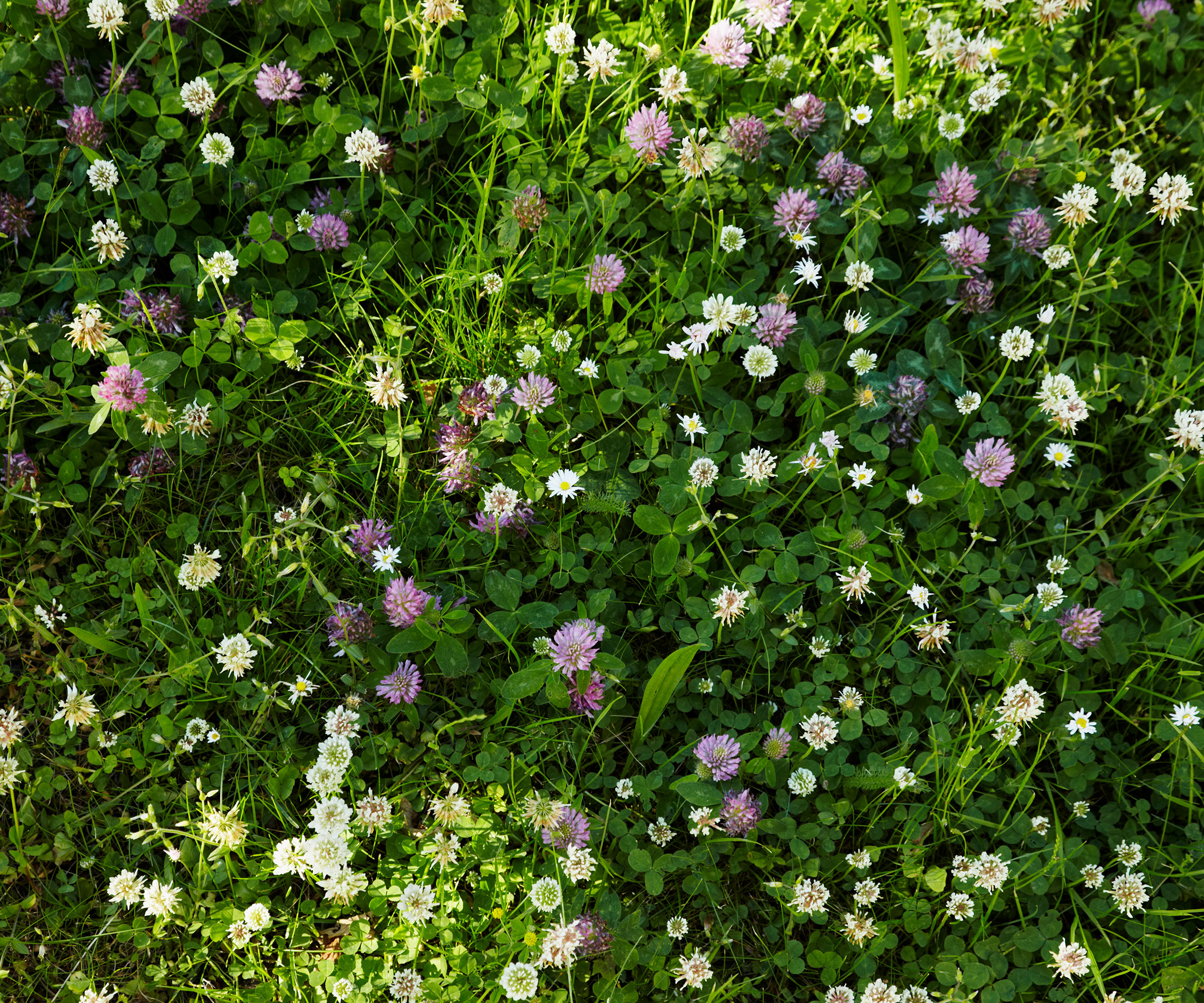
Finally, a lush green patch of clover can be incorporated into landscaping projects, with very good-looking results.
You could even choose a colored variety, we found a product called Tri-Clover by Eretz on Amazon which blends three types of clover in shades of white, pink and red.
Naturally, this depends on how you like your garden to look. 'Clover can be seen as a weed or annoyance due to its tendency for aggressive growth, since it can spread rapidly and compete with grass species in lawns and gardens,' says Matthew Koch.
'For those looking to keep clover in just one area of their lawn or garden, it’s likely not the best choice as its spread can be difficult to control,' adds Matthew. 'Additionally, some people prefer the aesthetic of manicured turf over a carpet of clover, which produces occasional low-growing flowers.'
FAQs
Why is there so much clover in my lawn?
Lawns that are naturally prone to clover typically have low levels of nitrogen within the soil, or high levels of compaction. An infrequent mowing schedule can also contribute to natural clover growth within lawns.
Favored by some over getting rid of dandelions or getting rid of crabgrass in a yard, a little clover may not be so bad after all and for many yards it could even be worth keeping.
Sign up to the Homes & Gardens newsletter
Design expertise in your inbox – from inspiring decorating ideas and beautiful celebrity homes to practical gardening advice and shopping round-ups.

Camille is the former deputy editor of Real Homes where she covered a broad range of topics, including house tours, small space design, and gardens. She studied English language and Italian at the University of Manchester and during a year abroad studying linguistics and history of art in Bologna, Italy she started documenting her adventures and observations in a blog. Camille is always creating and spends her downtime painting, taking photos, traveling, and writing short stories.
-
 Everyone is obsessed with vintage tiles right now – bring the nostalgic charm of this classic design feature into your home with our 5 design ideas
Everyone is obsessed with vintage tiles right now – bring the nostalgic charm of this classic design feature into your home with our 5 design ideasHonor the past with our favorite ways to decorate with vintage tiles, as suggested by interior design experts
By Eleanor Richardson Published
-
 'It's a fast reset button' – using the 1, 2 ,3 ,4, 5 decluttering method cleared my persistent mess in seconds
'It's a fast reset button' – using the 1, 2 ,3 ,4, 5 decluttering method cleared my persistent mess in secondsIt's easy, effective and so quick to do
By Ottilie Blackhall Published